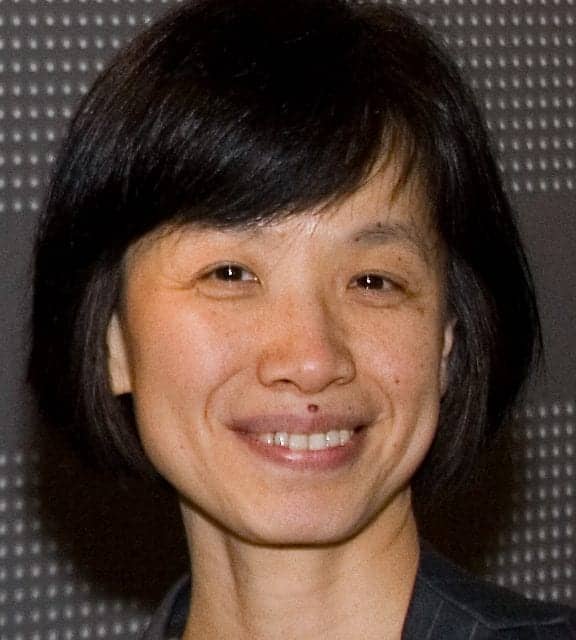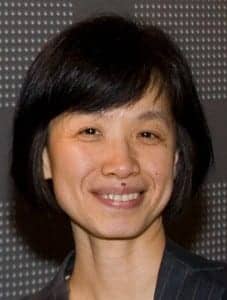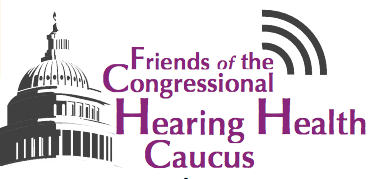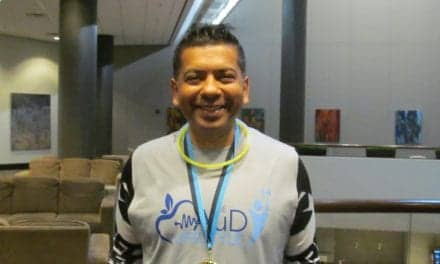Teresa Y.C. Ching, PhD, a senior research scientist and head of hearing rehabilitation procedures research at the National Acoustic Laboratories (NAL) in Australia, traveled to the AudiologyNOW! 2016 Convention in Phoenix, Ariz, to present the 10th Annual Marion Downs Lecture, “Population Outcomes of Children with Hearing Loss: Early Treatment is Critical but Not Sufficient” on April 15.
This lecture series is named for Marion Downs, PhD, the internationally acclaimed audiologist who, among her many significant contributions to the field of hearing healthcare, brought attention to the importance of early identification of hearing loss in newborns. She is credited with establishing the US newborn hearing screening program that assesses the hearing of nearly 4 million babies each year.
Jerry Northern, PhD, who worked closely with Downs in the Audiology Center of the University of Colorado Hospital for nearly 40 years, introduced Dr Ching, whose research interests and experience encompass many aspects of aural rehabilitation for children and adults with hearing loss, making her an excellent choice as a lecturer in this series. Dr Ching’s research includes amplification requirements, speech intelligibility, psychoacoustic abilities, evaluation methods for children, bimodal hearing and bilateral cochlear implantation.
Ching is currently leading a population-based study, the Longitudinal Outcomes of Children with Hearing Impairment (LOCHI), which examines the longitudinal outcomes of children who have been diagnosed with unilateral and bilateral hearing loss through the universal newborn hearing screening (UNHS) programs in Australia. She presented the current findings of this study to the AAA audience.
Ching explained that the LOCHI study aims to examine the longitudinal development of children who have been identified with hearing loss in New South Wales, Victoria, and Queensland, Australia. Participation in the LOCHI study is voluntary and parents are able to withdraw their child at any stage without explanation and consequence on the services they receive from Australian Hearing and intervention centers.
Approximately 468 children are participating in the LOCHI study in Australia—QLD (21%), NSW (51%) and VIC (28%). Male participants make up 55% of the study, and 37% of participating children have additional disabilities. Ching reported that the first phase of the study focused on development in children up to 5 years of age, with assessments conducted at 6 and 12 month intervals post hearing aid treatment or cochlear implant switch on. Subsequent assessments were conducted at 3 and 5 years of age. The second phase of the study, currently underway, involves testing the participating children at 9 years of age, and there are plans to follow up with them again at 12 years of age.
Assessments, which involve many different tests, typically take around 3-4 hours and include hearing and language assessments that are carried out over a couple of sessions. They take place at the hearing or intervention center where each child normally receives services, or at their school. During a visit, the child’s ability to communicate verbally, perform tasks according to verbal instructions, and repeat what’s heard are assessed. Ching said that parents, caregivers and teachers also are asked to complete questionnaires and provide verbal reports on the children’s day-to-day behavior.
In her presentation, Ching emphasized that an essential part of the LOCHI study is to relate how children with hearing loss perform on the tests when compared to children who have normal hearing. Her research team has a sub study running at the same time as LOCHI, testing children with normal hearing on the LOCHI test battery.
In her summary of the findings of the LOCHI study, Ching related that the study is providing world-first evidence for the benefits of early hearing-aid fitting by 6 months or cochlear implantation by 12 months of age, combined with educational intervention for language development of children. As hinted at in the title of her lecture, the LOCHI study has revealed that early intervention is critical, but not enough. Ching outlined her group’s findings on specific deficits in pre-reading skills, suggesting that targeted and repeated intervention for development of these skills as a child grows is necessary for children to obtain the full benefit of early intervention of hearing loss.
Ching concluded her presentation by saying the long-term follow up of the existing cohort could confirm the societal as well as individual benefits of UNHS for enabling children with hearing loss to achieve language, academic and other outcomes commensurate with their cognitive potential. The significant effect of early intervention with hearing aids and cochlear implantation and the estimated effect of delays in intervention on language outcomes highlight the need to streamline early intervention services to ensure that children who need cochlear implants receive them early.
For more information about the work of Dr Ching and her research team, visit the LOCHI outcomes pages on the NAL website.






